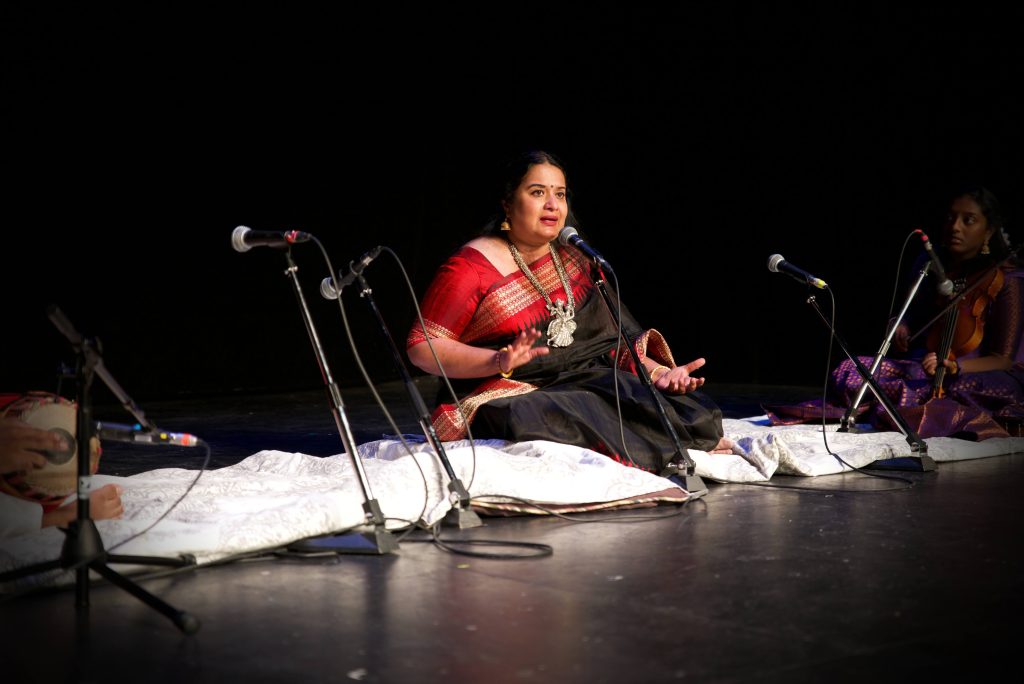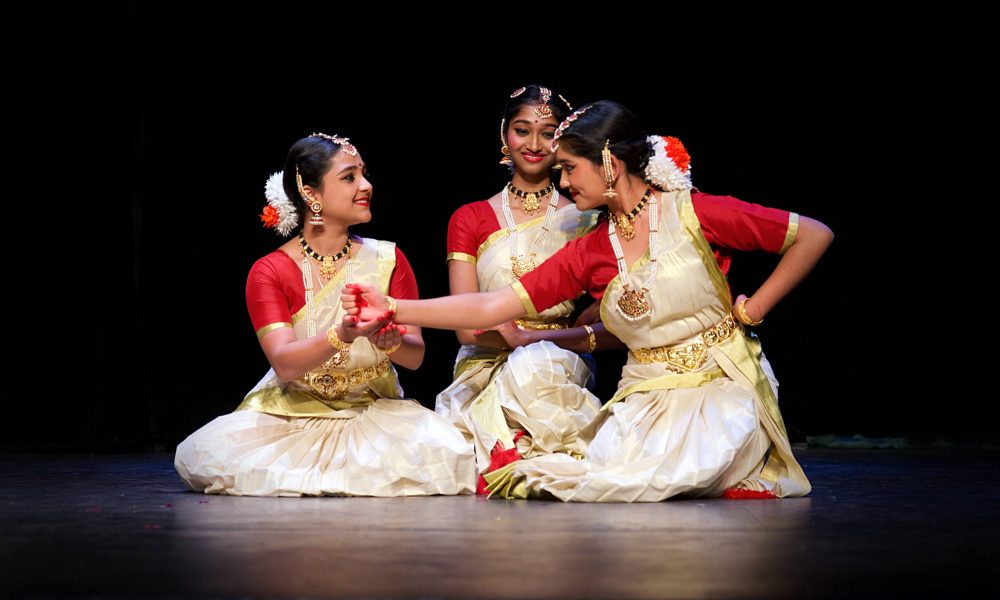Indian Classical Music

Let us know how we can assist you!
Provide your details so we can reach out to you.
Indian Classical Music
Indian Classical Music is one of the oldest and most profound musical traditions in the world, deeply rooted in the spiritual and cultural heritage of India. It is not just an art form but a path to inner harmony and meditation, reflecting the rich diversity of Indian culture. The system of Indian Classical Music is based on ragas (melodic frameworks) and talas (rhythmic cycles), which create a unique and intricate musical structure. Unlike Western music, which is largely harmonic, Indian classical music is primarily melodic, allowing the artist to explore a raga’s emotional depth through intricate improvisations. This improvisational nature makes every performance unique, as musicians weave together notes and rhythms in a deeply expressive and personal manner. Indian Classical Music is broadly divided into two distinct traditions: Hindustani and Carnatic. Hindustani music, which evolved in North India, has been influenced by Persian and Mughal musical traditions, leading to the development of elaborate improvisations and slower tempo compositions. It includes vocal and instrumental forms such as Dhrupad, Khayal, Thumri, and Tappa, along with famous instruments like the sitar, tabla, sarod, and harmonium. Carnatic music, predominant in South India, is more structured and emphasizes compositions (kritis) by legendary composers such as Tyagaraja, Muthuswami Dikshitar, and Syama Sastri. It features instruments like the veena, mridangam, ghatam, and violin, and is known for its rapid tempo and complex rhythmic patterns. Despite their differences, both traditions share a common goal: to evoke deep emotions and connect the listener to a higher state of consciousness. At Nupura School of Music and Dance, we honor this age-old tradition by training students in both Hindustani and Carnatic styles, offering lessons in vocal and instrumental music. Whether it is the soulful alap of a Hindustani raga or the intricate swara patterns of a Carnatic kriti, students are encouraged to delve into the depths of musical expression. Learning Indian Classical Music requires years of dedication, patience, and discipline, but the rewards are profound. It enhances concentration, creativity, and emotional sensitivity, making it not just an artistic pursuit but a transformative journey of the soul. With its timeless appeal and deep-rooted significance, Indian Classical Music continues to inspire and mesmerize audiences across the world, bridging the past with the present through its melodious and meditative essence.
Contact Nupura School of Music and Dance
Have questions? Want to join our classes? We’re here to help!
- info@Danza.com
- +(163)-1202-0099
Related Classes

Bharatanatyam
Bharatanatyam, one of the most revered and ancient classical dance forms of India, is a profound expression of devotion, storytelling, and rhythmic precision. Originating from the temples of Tamil Nadu, this art form was historically performed by temple dancers known as Devadasis as an offering to the gods. With roots deeply embedded in the Natya Shastra, the ancient Sanskrit text on performing arts, Bharatanatyam blends intricate footwork, expressive hand gestures (mudras), and emotive facial expressions (bhavas) to narrate tales from Hindu mythology. Each movement is symbolic, reflecting the philosophical, spiritual, and cultural essence of India's rich heritage. At Nupura School of Music and Dance, we emphasize the traditional techniques of Bharatanatyam while also exploring its contemporary interpretations. Under the expert guidance of our renowned instructors, students receive structured training in the fundamental aspects of Bharatanatyam, including Adavus (basic steps), Jathis (rhythmic sequences), and Abhinaya (expressive storytelling). As they progress, they learn complex choreographies and gain a deeper understanding of the raga (melody), tala (rhythm), and sahitya (lyrics) that form the foundation of this dance. Through rigorous training, students develop grace, strength, discipline, and an intimate connection with the art form, preparing them for solo performances, group productions, and stage presentations at prestigious cultural events. Beyond its aesthetic beauty, Bharatanatyam serves as a spiritual and meditative experience, allowing dancers to express devotion and emotion in an artful manner. It is not just a dance form but a way of life, teaching valuable life skills such as patience, perseverance, and dedication. At Nupura, we strive to preserve the authenticity of Bharatanatyam while nurturing creativity in our students, helping them become confident performers and cultural ambassadors. Whether learning as a hobby, for personal enrichment, or as a professional pursuit, Bharatanatyam at Nupura offers a transformative journey into the world of Indian classical dance.
Mohiniyattam
Mohiniyattam, the classical dance form of Kerala, is a mesmerizing blend of grace, fluidity, and expressive storytelling. Rooted in the temples of Kerala, this dance form derives its name from ‘Mohini,’ the enchanting celestial maiden of Hindu mythology. Known for its slow, lyrical movements and swaying body postures, Mohiniyattam embodies the essence of femininity and devotion. It is deeply influenced by the Lasya (graceful and delicate movements) style of dance, characterized by soft footsteps, gentle hand gestures (mudras), and emotive facial expressions (bhavas). Traditionally performed as a solo dance by women, Mohiniyattam narrates mythological and spiritual themes, often set to the melodious tunes of Carnatic music accompanied by instruments like the mridangam, veena, and edakka. At Nupura School of Music and Dance, we take pride in offering comprehensive Mohiniyattam training, ensuring that students master its unique style and subtle nuances. The dance follows a structured format, beginning with foundational Adavus (basic steps) and progressing to complex sequences of Vaittari (rhythmic syllables) and Abhinaya (expressive storytelling). The costumes, adorned with off-white and gold sarees, along with the distinctive hairstyle and jewelry, add to the elegance of the performance. Mohiniyattam’s unique circular and semi-circular movements, influenced by the natural landscapes of Kerala, make it a dance form of serene beauty and deep emotion. Our experienced instructors ensure that students not only perfect the technical aspects but also immerse themselves in the spiritual essence of the art. Beyond its visual splendor, Mohiniyattam serves as a path of inner harmony and artistic expression. It is a meditative dance form that helps dancers develop poise, discipline, and a deep connection with classical traditions. At Nupura, we nurture each student’s individual artistic journey, encouraging them to bring their own interpretation while respecting the authenticity of the form. Whether performed as a traditional temple dance or a contemporary stage presentation, Mohiniyattam remains a symbol of Kerala’s cultural richness, captivating audiences with its ethereal charm and timeless elegance.

Kuchipudi
Kuchipudi is a dynamic and expressive classical dance form originating from Andhra Pradesh, India. Known for its graceful movements, intricate footwork, and captivating expressions, Kuchipudi is a perfect blend of dance, drama, and rhythm. Unlike some other classical dance forms, Kuchipudi was traditionally performed as a dance-drama, where artists combined acting, singing, and dancing to narrate mythological stories. Over time, it evolved into a solo performance art, while still retaining its dramatic storytelling essence. Accompanied by Carnatic music, the performances often depict episodes from Hindu epics like the Ramayana, Mahabharata, and Bhagavata Purana. The dance is characterized by its swift and rhythmic movements, as well as the delicate expressions (abhinaya) and hand gestures (mudras) used to convey emotions and stories. At Nupura School of Music and Dance, we provide authentic Kuchipudi training, helping students master its unique blend of Nritta (pure dance), Nritya (expressive dance), and Natya (drama). One of the most distinctive aspects of Kuchipudi is the tradition of performing on a brass plate (Tarangam), where dancers balance themselves on the edges of the plate while executing rhythmic footwork. This requires immense skill, balance, and precision, making it one of the most visually striking elements of the dance. The costumes of Kuchipudi resemble those of Bharatanatyam but are more lightweight and flowing, allowing for greater mobility. The ornaments, expressive eye makeup, and vibrant colors further enhance the beauty of the performance, making it a delight to watch. Beyond its grace and elegance, Kuchipudi is a deeply spiritual and philosophical art form. It is not just about movement but also about connecting with emotions, mythology, and devotion. The rhythmic patterns, synchronized footwork, and intricate expressions make it both a challenging and rewarding dance form to learn. At Nupura, we ensure that every student experiences the joy, discipline, and tradition of Kuchipudi, encouraging them to bring their own artistic interpretation while respecting the classical framework. With its rich cultural heritage and vibrant energy, Kuchipudi continues to captivate audiences worldwide, celebrating the beauty of storytelling through dance.

Indian Classical Music
Indian Classical Music is one of the oldest and most profound musical traditions in the world, deeply rooted in the spiritual and cultural heritage of India. It is not just an art form but a path to inner harmony and meditation, reflecting the rich diversity of Indian culture. The system of Indian Classical Music is based on ragas (melodic frameworks) and talas (rhythmic cycles), which create a unique and intricate musical structure. Unlike Western music, which is largely harmonic, Indian classical music is primarily melodic, allowing the artist to explore a raga’s emotional depth through intricate improvisations. This improvisational nature makes every performance unique, as musicians weave together notes and rhythms in a deeply expressive and personal manner. Indian Classical Music is broadly divided into two distinct traditions: Hindustani and Carnatic. Hindustani music, which evolved in North India, has been influenced by Persian and Mughal musical traditions, leading to the development of elaborate improvisations and slower tempo compositions. It includes vocal and instrumental forms such as Dhrupad, Khayal, Thumri, and Tappa, along with famous instruments like the sitar, tabla, sarod, and harmonium. Carnatic music, predominant in South India, is more structured and emphasizes compositions (kritis) by legendary composers such as Tyagaraja, Muthuswami Dikshitar, and Syama Sastri. It features instruments like the veena, mridangam, ghatam, and violin, and is known for its rapid tempo and complex rhythmic patterns. Despite their differences, both traditions share a common goal: to evoke deep emotions and connect the listener to a higher state of consciousness. At Nupura School of Music and Dance, we honor this age-old tradition by training students in both Hindustani and Carnatic styles, offering lessons in vocal and instrumental music. Whether it is the soulful alap of a Hindustani raga or the intricate swara patterns of a Carnatic kriti, students are encouraged to delve into the depths of musical expression. Learning Indian Classical Music requires years of dedication, patience, and discipline, but the rewards are profound. It enhances concentration, creativity, and emotional sensitivity, making it not just an artistic pursuit but a transformative journey of the soul. With its timeless appeal and deep-rooted significance, Indian Classical Music continues to inspire and mesmerize audiences across the world, bridging the past with the present through its melodious and meditative essence.

